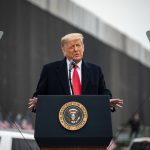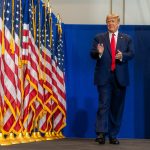In recent days, OpenAI sparked controversy after its CFO hinted government backing might be needed to support the company's massive $1.4 trillion investment in AI infrastructure like data centers and chips. This suggestion ignited a backlash from across the political spectrum, forcing OpenAI to quickly clarify that it is not seeking a government bailout, though it acknowledges the importance of public-private cooperation to advance American AI leadership. This episode has raised alarms about the financial sustainability of AI firms and fears of an emerging AI bubble reminiscent of the dot-com bust two decades ago.
Meanwhile, Nvidia has quietly emerged as the true powerhouse of the AI revolution. Valued at over $5 trillion, it dominates the AI chip market with around 80-90 percent market share, fueling the computing needs of the industry's biggest players. Nvidia's grip on this essential technology underpins everything from cloud platforms to autonomous vehicles and supercomputers, making it a cornerstone company with pervasive influence in both economic and national security arenas. Yet, Nvidia's CEO Jensen Huang recently stirred the pot by predicting China will ultimately win the AI race, citing factors like cheaper energy costs—comments that ignited debate about U.S. policy and the globalization of AI innovation.
The alarm over China "taking over" the AI race is overblown. China’s AI progress mainly stems from copying American advances rather than truly original innovation. The narrative that China will dominate AI solely on that basis risks overly simplistic fearmongering, which distracts from American strengths in open markets, private enterprise, and technological creativity. Nonetheless, the geopolitical tensions underscore the critical need for deliberate U.S. leadership in AI and strategic policies that protect key technologies without cutting off engagement with global talent.
The conversation about a potential AI bubble, while compelling, ignores the fundamental role AI plays in today’s economy beyond flashy or superficial hype. Unlike the dot-com boom's empty websites, AI technologies now power vital sectors and infrastructure, meaning any disruption in Nvidia or broader AI markets would have significant ripple effects. This complexity demands nuanced oversight rather than knee-jerk rescues or blind hands-off policies that could allow instability to develop unchecked.
Ultimately, the pressing question remains: who decides when an AI company like Nvidia or OpenAI becomes "too big to fail," and what role should the government play? Policymakers must understand the strategic importance of AI while resisting calls for unwarranted bailouts, lest public resources be squandered on corporate risks born of ambition or mismanagement. At the same time, ignoring the sector’s systemic importance could risk serious economic and security consequences. Balancing these competing priorities is the true test of leadership in this transformative era.




